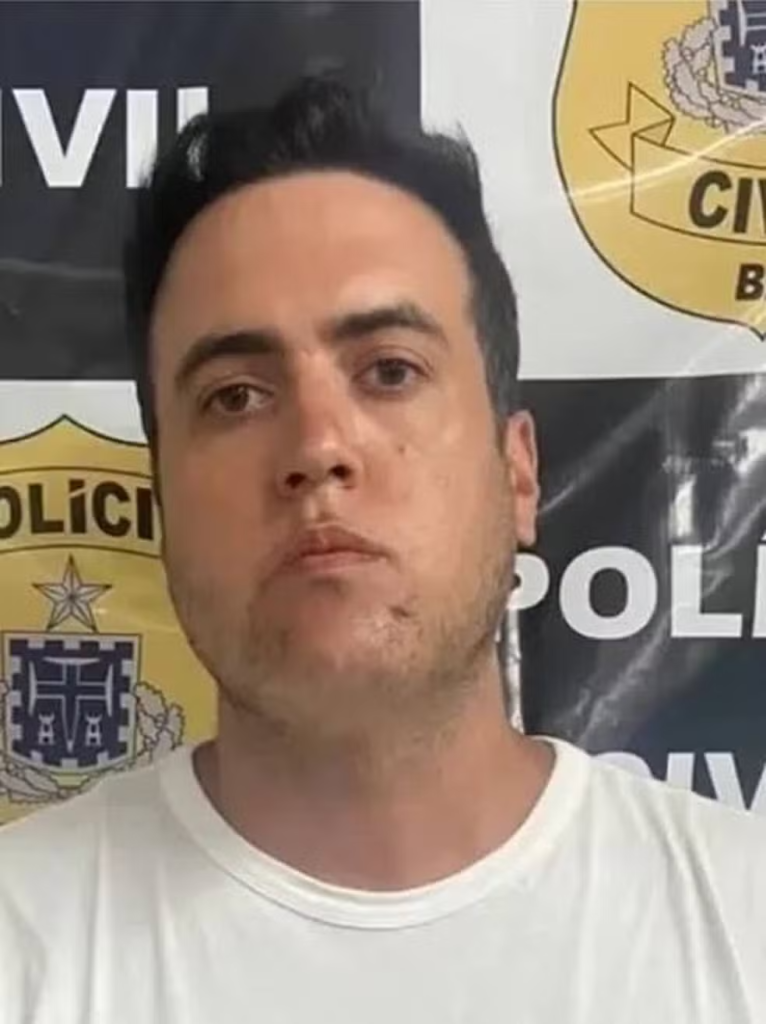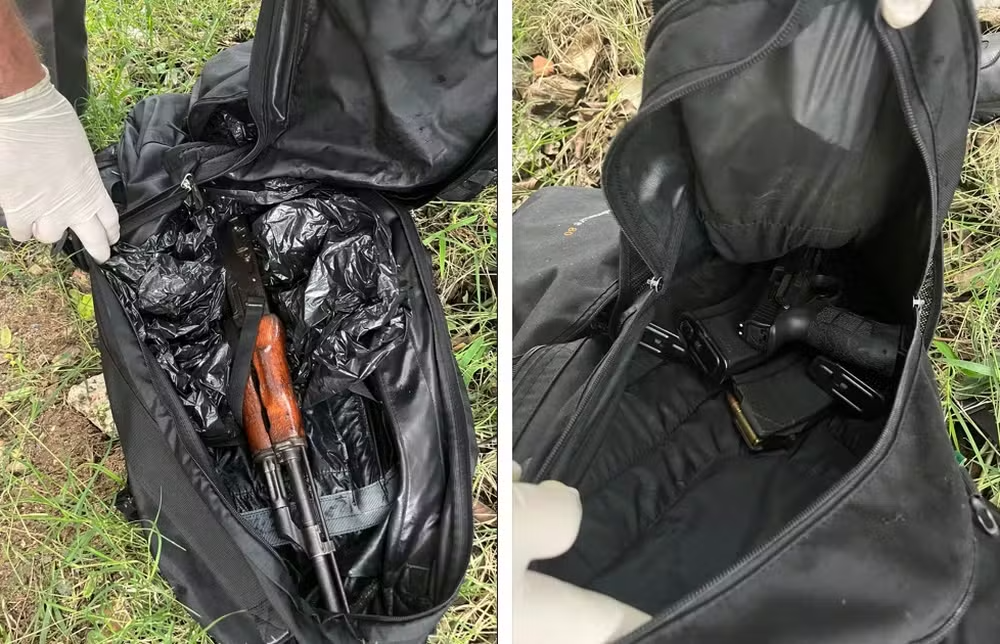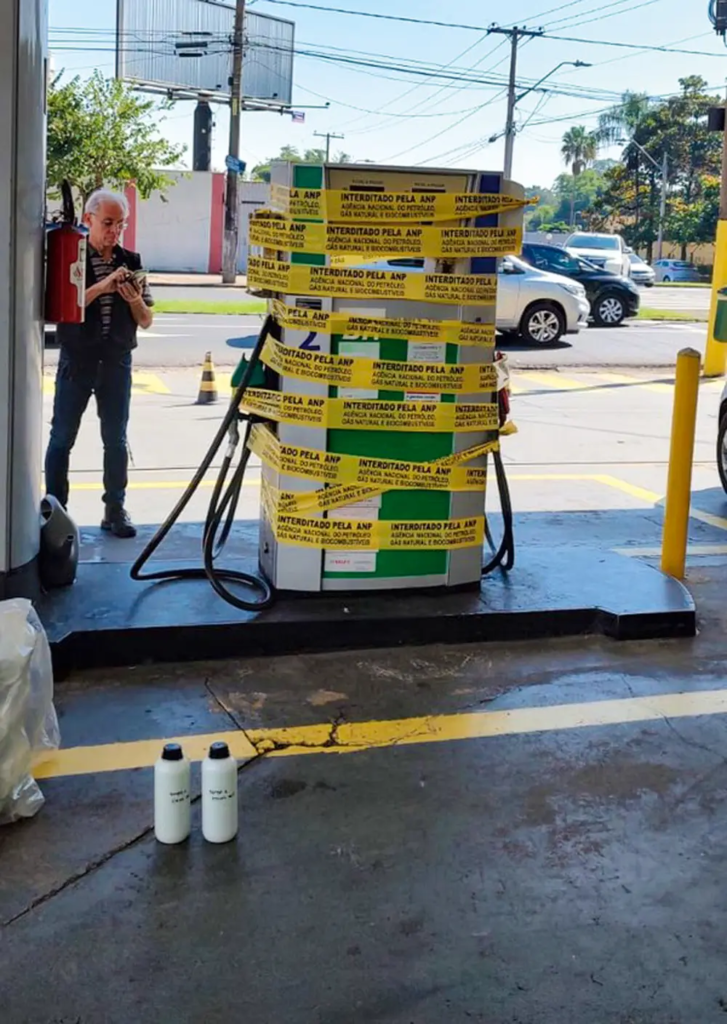SUMMARY
The assassination of Antônio Vinicius Lopes Gritzbach at São Paulo International Airport exemplifies the alarming expansion of organized crime in Brazil, where criminal factions not only operate with impunity but also infiltrate state institutions and economic sectors. Gritzbach, who had been cooperating with prosecutors to expose money laundering networks and police corruption linked to the First Capital Command (PCC), was executed in an attack at the country’s most important airports. His murder, likely a retaliatory act by the PCC, demonstrates the faction’s capacity to orchestrate high-profile assassinations despite ongoing law enforcement efforts to dismantle its operations.
Beyond targeted violence, the case highlights a deeper issue: the infiltration of criminal organizations into security forces, public services, and key economic sectors. The growing influence of organized crime is not confined to São Paulo—in Rio de Janeiro, militias and the Red Command (CV) follow similar patterns, embedding themselves within public institutions and legitimate businesses to expand their power.
This Content Is Only For Subscribers
To unlock this content, subscribe to INTERLIRA Reports.
Murder in Guarulhos
On 8 November, businessman and informant Antônio Vinicius Lopes Gritzbach was assassinated at São Paulo International Airport in Guarulhos, Brazil’s largest and most important airport. Security cameras recorded the attack. The shots were fired from a vehicle, which was parked in front of a Metropolitan Civil Guard (GCM) bus. The car was later found abandoned in a nearby community. Gritzbach had been collaborating with the São Paulo Public Prosecutor’s Office, reportedly exposing First Capital Command’s (PCC) money laundering schemes and police corruption.

Gritzbach had a complex history with the PCC. In addition to providing information to the authorities, he had also been involved in internal disputes within the criminal organization. Investigations suggest that he ordered the killings of two PCC members, Anselmo Becheli Santa Fausta (Cara Preta) and Antônio Corona Neto (Sem Sangue), who were executed on 27 December 2021. As a result, he became a defendant in these crimes and was likely marked for retaliation by the faction.
In March 2024, he signed a plea bargain agreement with the Public Prosecutor’s Office, revealing crucial details about criminal operations. He provided extensive information on PCC activities, including criminal courts, where the faction decides whether members should be executed for committing a serious transgression. His deep involvement within PCC cells gave him access to sensitive intelligence, which he had promised to disclose in the future. At the time of his assassination, Gritzbach was returning from Maceió to São Paulo with his girlfriend. His four bodyguards, all São Paulo military police officers, could not protect him due to an apparent logistical failure. Their vehicle broke down en route to the airport, and only one officer, who was waiting with Gritzbach’s son, made it on time. The others were stranded at a gas station, leaving Gritzbach vulnerable to the fatal ambush.
PCC Infiltration into Security Forces
The murder shocked the authorities due to the audacity of the criminals. The case highlights the growing sophistication of organized crime, which increasingly blurs the lines between the formal economy and the criminal underworld through money laundering schemes and infiltration of state institutions. The ability of criminal factions to orchestrate assassinations in high-security areas further underscores their expanding influence and operational reach.
On 16 January, the Internal Affairs Unit of the São Paulo Military Police arrested 16 police officers, including an active-duty officer suspected of being one of Gritzbach’s killers. The investigation uncovered allegations that confidential information was being sold to PCC members and that both active and retired officers were providing protection services to criminals. The Civil Police have also been implicated—an operation in December 2024 led to the arrest of four officers suspected of money laundering and selling protection to the PCC, with their names appearing in Gritzbach’s plea bargain.

The involvement of law enforcement with the PCC is not a new phenomenon. Since Operation Ubirajara in 2018, which resulted in the conviction of 45 military police officers from São Paulo, police links to the PCC have been well documented. A survey by GLOBO revealed that between 2019 and December 2024, 111 police officers from five states and the Federal District were charged or convicted for connections to the PCC. Cases range from escorting drug shipments and assisting ATM thefts to conducting targeted killings. The most common charge is corruption, with 80% of implicated officers accused of accepting bribes. The Military Police had the highest number of officers implicated (72), followed by the Civil Police (32) and Penal Police (7). While PM officers were more frequently involved, Civil Police officers received larger bribes due to their investigative role, which gave them direct access to PCC leadership. São Paulo, the birthplace of the PCC, accounted for 83% of the implicated officers, though the faction’s influence extends nationwide. In Roraima, an operation by the Federal Police exposed four prison officers at the Monte Cristo Agricultural Penitentiary who were accepting bribes to smuggle cell phones and drugs for PCC leaders. These revelations further emphasize the systemic corruption that enables organized crime to thrive.
Infiltrating the Economy
The PCC has systematically infiltrated key economic sectors, using transportation, fuel, and public services to launder money and expand control. What began as logistical control quickly evolved into a complex financial network, allowing the faction to embed itself in public contracts and essential industries.
Operation “Fim da Linha”, launched on 9 April 2024, uncovered a R$732 million money laundering scheme within São Paulo’s bus companies from 2020 to 2022. Drug trafficking and robbery profits were funneled into these firms through frontmen who invested capital or purchased buses, aided by accountants. Companies distributed dividends despite financial losses—one partner received R$14.8 million (2015–2022), even though the company had R$5 million in losses.

For over 20 years, the PCC has expanded beyond transportation into garbage collection and healthcare. Initially controlling illegal vans, the faction adapted when, in 2003, regulations transformed them into cooperatives, exploiting public bidding processes with shell companies. Anderson Lacerda Pereira (“Gordão”), a PCC figure, infiltrated Arujá’s healthcare system, securing contracts for garbage collection and hospital services. His network controlled the city’s only hospital, diverting municipal funds into drug production.
The fuel sector has become one of the PCC’s most profitable ventures, offering a dual benefit: laundering illicit funds and controlling logistical routes essential for drug trafficking. The faction profits from cash transactions, fuel adulteration, and tax evasion. By 2023, authorities estimated PCC control over 1,100 of São Paulo’s 9,000 gas stations. The group also expanded into ethanol plants to facilitate fuel theft and smuggling, particularly in Northern Brazil.

Beyond fuel and transport, the PCC launders money through betting, fintechs, real estate, car sales, and evangelical churches. It has gained political influence, supporting candidates to secure public contracts, particularly in health and transportation. This deep infiltration distorts market competition, allowing criminal enterprises to undercut legitimate firms while embedding money laundering networks within corporate structures. By embedding money laundering networks within corporate structures, the PCC blurs the lines between legal and illegal economies. Large corporations, often unaware of these hidden connections, risk financial, legal, and reputational damage by unknowingly engaging with criminally linked suppliers or partners. This risk is particularly evident in the fuel sector, where PCC-controlled gas stations may operate independently or through franchise agreements with major distributors, further entrenching illicit networks in the legal economy.
Other Criminal Factions
Criminal factions like Red Command (CV) and militias in Rio de Janeiro infiltrate security forces, public authorities, and private companies, threatening law enforcement integrity, democratic governance, and market competition.
These groups have embedded members within the Military Police, Civil Police, and other security agencies. Corrupt officers provide intelligence, protect criminal operations, and engage in extortion and bribery. Militias, originally formed by off-duty or retired law enforcement personnel, have evolved into narco militias, leveraging state intelligence and weapon access to control extortion, land grabbing, illegal gambling and to finance drug trafficking.
Beyond security forces, these organizations influence municipal governments, legislatures, and regulatory agencies through election funding, intimidation, and bribery. This ensures control over key sectors like public transportation, waste management, and real estate development. Militias use political connections to secure public contracts, directing state resources to fund their activities.
Large corporations are also at risk of infiltration. Criminal groups invest in security firms, construction companies, and financial institutions as fronts for money laundering and fraud. They manipulate supply chains, rig bidding processes, and intimidate competitors, distorting market dynamics. Their dominance over real estate, logistics, and transportation networks fuels a parallel economy that undermines corporate governance.
To combat their growing influence, enhanced anti-corruption policies, financial transparency, and strict law enforcement oversight are essential to dismantling the networks sustaining these criminal enterprises.
Expanding Criminal Influence
The execution of Antônio Vinicius Lopes Gritzbach at São Paulo International Airport highlights the PCC’s operational strength and the growing influence of criminal factions in Brazil. The murder of a justice collaborator in such a highly monitored location demonstrates the sophistication of organized crime and the challenges security forces face in combating it. This case underscores the urgent need for a strategic review to prevent criminal infiltration in state institutions.
The PCC and other groups weaken law enforcement by infiltrating security forces, reducing police effectiveness. Their involvement in key industries—such as transportation, fuel, and public health—allows them to expand their influence through money laundering and illicit control. Legitimate businesses face unfair competition, as criminal enterprises use illicit funding to monopolize services and coerce rivals.
Similarly, militias and the Red Command in Rio de Janeiro corrupt public officials and dominate sectors like construction and private security. Their expansion increases risks for legal businesses, leading to extortion and regulatory instability.
The growing presence of organized crime in the corporate sector threatens investments and business stability. Stronger compliance measures, enhanced audits, and tougher anti-money laundering policies are essential. Both public and private sectors must reinforce oversight to prevent further criminal infiltration and protect economic integrity.




